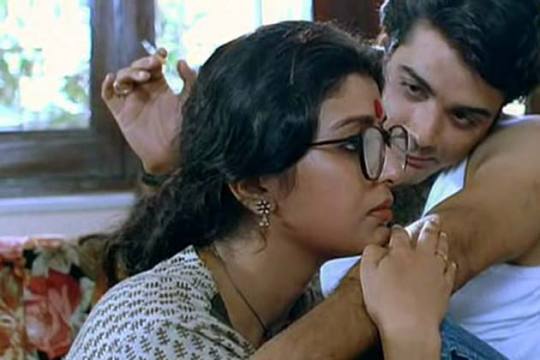#unishe april
Text
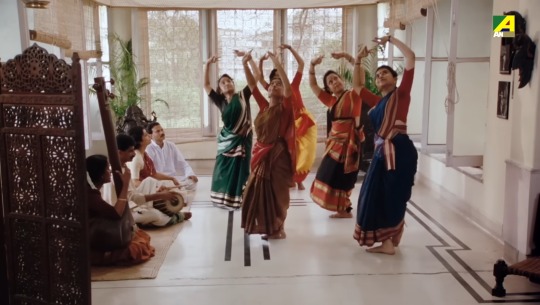
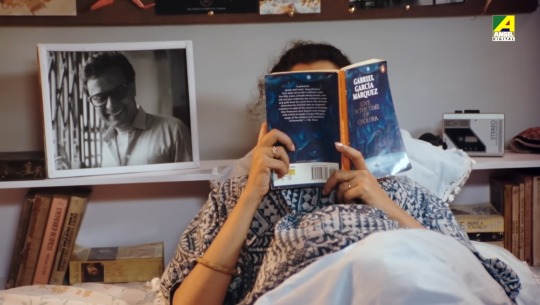
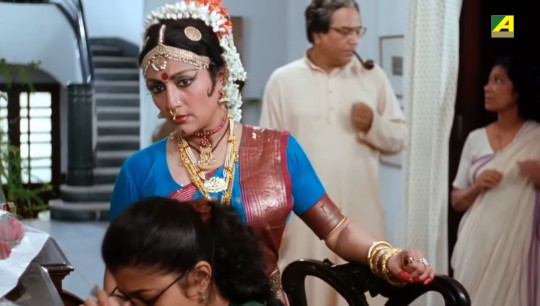
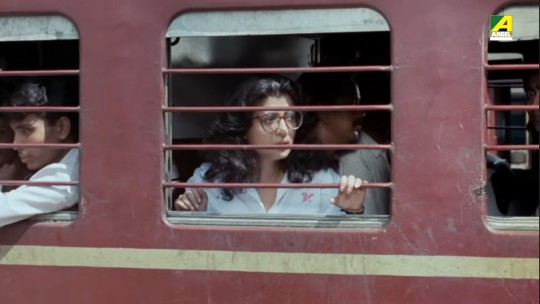
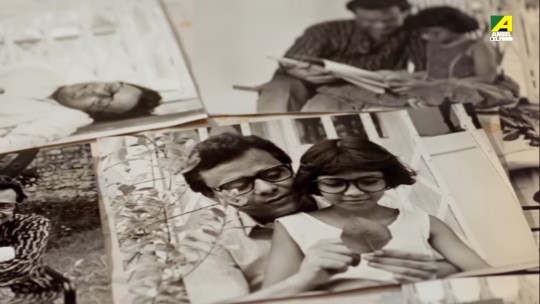
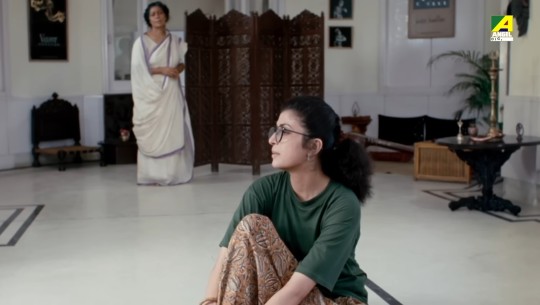
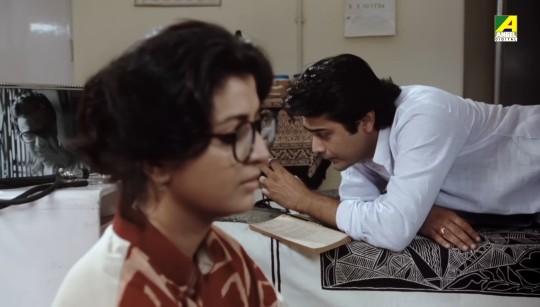
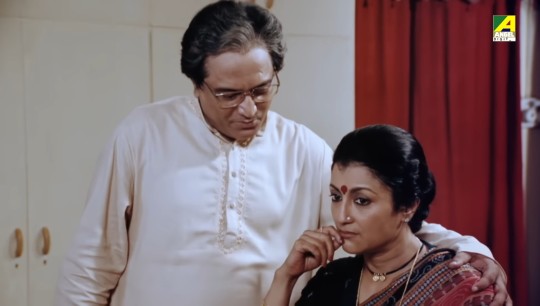
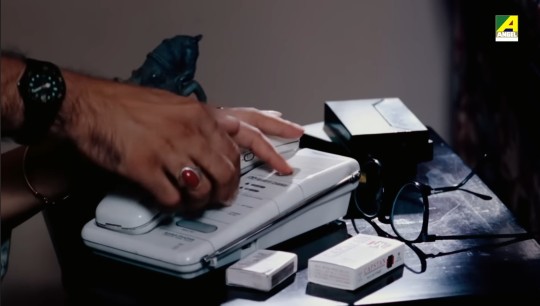
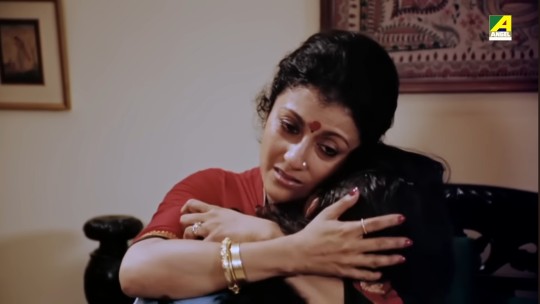
Unishe April (1994), dir. Rituparno Ghosh
#film blog#asian cinema#indian films#indian cinema#bengali film#bengali cinema#rituparno ghosh#unishe april#women in film
11 notes
·
View notes
Text
Queering Bengali Cinema: Rituparno Ghosh's Retelling of Cultural Texts
Themes of loneliness drive my films"
~Rituparno Ghosh

Antarmahal (2005)
Shubho Mahurat (2003)
Chokher Bali (2003)
Abohomaan (2009)
Dosar (2006) Utsab
(2000) Dahan (1997) Unishe April (1994) Shob Charitro Kalponik (2009) Asukh (1999)
Rituparno Ghosh was a gender nonconforming, sexually dissident filmmaker who made and acted in films revolving around openly homosexual, bisexual and transgender characters. For his work, he won accolades including national awards in India and recognition at film festivals around the world. In 2013, 50-year-old Ghosh met with an untimely death due to heart attack; however, he lives on as India’s most visible queer icon, whose mere presence shook the heteropatriarchal foundations of Bengal’s as well as India's cultural milieu.
In two decades of his filmmaking career, Ghosh consistently engaged with topics considered taboo in the Bengali bhadralok society. Even though, it was much later that he started working with explicit queer content in his films, in the early phase of his career, in films such as Unishey April (1994), Dahan (1997), Bariwali (1999), Utsab (2000), Shubho Maharat (2003), Ghosh dealt with trauma and repressed desire of women in a patriarchal society, seen by scholars as a reflection of the agony of a queer individual in the proverbial closet in a heteronormative society.[1]
Ghosh’s cinema was relatable for the Bengali bhadralok because it was heavily influenced by the film aesthetic of revered filmmakers such as Satyajit Ray. While this visual language made him a favourite of the English-educated, urban Bengali, his exploration of the ‘unusual themes’ placed him at the receiving end of scathing criticism. Ghosh, however, was quick to find a middle ground. He succeeded in evoking the nostalgia of the rich heritage of Calcutta by employing Hindustani classical music or Rabindra Sangeet as background score, and by setting the film narrative in the decorated interiors of old mansions of colonial or pre-colonial Calcutta. Under the garb of such nostalgic elements, he lured the bhadralok audience to the cinema theatre and presented his queer film aesthetic in a way that would suit their sensibility. This subterfuge of relatability helped Ghosh naturalise the themes of same-sex desires and the experiences of queer people of his later films.
In a similar vein, in queer-centric films that Ghosh made, influenced or took part in, such as Arekti Prem er Golpo (2010), Memories in March (2010) and Chitrangada: The Crowning Wish (2012), he freely accessed indigenous cultural resources to validate their contents. He delved into Bengal’s religious myths and cultural artefacts to perform alternative readings that not only helped historicise homosexual and other queer desires, but also helped normalise their struggles in the eyes of the cinemagoers.
Arekti Prem er Golpo: Androgyny and the Figure of Chaitanya Arekti Prem er Golpo (Just Another Love Story) is a film that Ghosh heavily influenced, although he did not direct it. The director, Koushik Ganguly, later confessed that Ghosh was rather stubborn about playing the role of the queer protagonist after his own image, instead of indulging the director’s idea. The film narrates the story of Abhiroop (played by Ghosh), an effeminate, homosexual filmmaker who is in the process of making a documentary film about Chapal Bhaduri, a Bengali jatra (popular folk theatre form of Bengal) actor who performed the roles of women on stage for 40 years. In the 1960s, Chapal Rani, as Bhaduri was known, was allegedly the highest paid ‘actress’ of Bengali jatra. The reference to the figure of Chapal Bhaduri in Arekti Prem er Golpo and his experiences as a performance artist, who constantly straddled male and female roles, supports the idea that gender is performative rather than biological. Abhiroop’s character is a modern-day parallel of Chapal’s. He loves a man but loses him when his lover’s wife becomes pregnant; the possibility of a child born out of a socially accepted heterosexual relationship, thus, obstructs the queer characters’ path to fulfilment. Abhiroop’s fate mirrors Chapal Bhaduri’s career as a female impersonator on stage, which came to an end when biologically female actors finally shattered the shackles of patriarchal restrictions and found their rightful place on stage. It restored the heteronormative standards where only a biologically female actor could play the part of a woman, and a biologically male actor could assume the role of a man. Bhaduri was no longer required to switch between gender binaries; while women emerged in the public space of the stage, the gender-queer actor was made to fade away.
The marginalisation that the gender nonconforming identities have to suffer echoes through the film, but there is also an assertion of the legitimacy of the ‘other’ gender beyond the male/female binary. The following conversation between Chapal and Abhiroop reflects this in the most effective way:
Abhiroop: Do you really see yourself as a woman, Chapal-da?
Chapal: Oh my! If I thought I was a man, there would not be any problem.
Abhiroop: I think women are one category, men are another, and we are a third category.
The reference to Sri Chaitanya, founder of the Gaudiya Vaishnava sect, also brings to the fore the celebration of androgynous identities and queer desires. Abhiroop, at one point, shaves his head to acquire a sort of ‘genderless’ look and narrates the story of Sri Chaitanya, whom he considers to be an icon of native cultural androgyny; Sri Chaitanya embodied both Radha and Krishna and preached Radha bhava (emotion)where the worshipper is in passionate love with Krishna. Ghosh’s films are also noted for their recurrent use of Vaishnava padavali (a lyric poetry tradition of verses narrating the erotic love play of Radha and Krishna).
Memories in March: Same-sex Desire and Brajabuli Lyrics Memories in March, written by Ghosh himself, and directed by Sanjay Nag, has a song written in Brajabuli language (an artificial language created by the fourteenth-century poet Vidyapati to write about the love of Radha and Krishna) by Ghosh which captures the eternal longing of the virahini (estranged lover) to be one with her love. The song, bahumanaratha saju abhisarey pahenu suneel bes (In the hope of meeting my lover, I put on a blue dress), speaks of Radha’s hope and anxiety about the possibility of meeting Krishna after a long separation.[2] The song plays in the background of scenes focussing on the sudden demise of Sidhharth, the lover of Ornab (played by Ghosh), in a car accident.
The use of this Brajabuli song in describing the love, longing and tragic end of a homosexual relationship accentuates the idea that same-sex desires transcend superficial physical attraction and have emotional and spiritual vitality like any romantic relationship. Ornab’s agony at the passing away of Siddharth is naturalised in the bhadralok eye by equating it with Radha’s agony at her separation from Krishna. Even in the film Raincoat (2004), there are Brajabuli songs narrating an illicit affair between a married woman and her childhood lover. These songs substantiate the queer aesthetic of Ghosh who bridges the gap between the legends of the illicit love affair of Radha-Krishna with the modern love affairs that function outside societal norms.
The language of the songs that establish the mood of Ghosh’s films is significant as well. According to Professor Bakshi, the use of songs written in Brajabuli language itself is symbolic[3] because Brajabuli is a language that does not have any geographical or cultural boundary; it is a language that borrows vocabulary from several other Indian languages. No language is, therefore, more suitable to carry the emotional gravity of the lived reality of people who do not fall under gender binaries.
https://safe.txmblr.com/svc/embed/inline/https%3A%2F%2Fyoutu.be%2Fte8LQ0WTjVE#embed-648f2693a5259326767389
youtube
Chitrangada: Gender Fluidity and Indigenous Myth Chitrangada: The Crowning Wish is a film that Ghosh wrote, directed and acted in. It draws inspiration from the legend of Princess Chitrangada whose father raised her as a boy but who wished to become a woman after falling in love with Arjuna. The film revolves around Rudra who meets Partho while rehearsing for a dance drama based on Tagore’s play Chitrangada (1892), falls in love with him and goes through a sex reassignment surgery to be able to bear a child. The story has conspicuous similarities with the Chitrangada myth. It validates the existence of deviant desires and identities from time immemorial, and invalidates the idea that these are the by-products of Western influence and modernity.
Ghosh’s engagement with the alternative readings of native resources not only queered the language of Indian cinema but also helped the Indian queer demography in locating itself in the indigenous culture of the land. His films and his presence in media as an openly queer individual gave the LGBTQ+ community of Bengal, and India at large, a voice. However, he has faced some criticism from the LGBTQ+ community for the glaring absence of the queer subculture, such as the drag culture and kotha-hijra(transgender communities)tradition of India in his cinema.[4] All the queer characters of his films are English educated, from urban spaces and financially affluent. This helped him naturalise queer identities in the bhadralok eye but weakened his films in terms of queer visibility, the politics of representing and bringing to the fore a heterogeneous cluster of queer figures in popular media.
https://safe.txmblr.com/svc/embed/inline/https%3A%2F%2Fyoutu.be%2FS0aETqBudTA#embed-648f2693a53ab862934033
youtube
https://safe.txmblr.com/svc/embed/inline/https%3A%2F%2Fyoutu.be%2F7prDTZhwA8U#embed-648f2693a54b2285396613
youtube
https://safe.txmblr.com/svc/embed/inline/https%3A%2F%2Fyoutu.be%2Fu96MJrjO3BM#embed-648f2693a557e953251883
youtube
24 notes
·
View notes
Photo
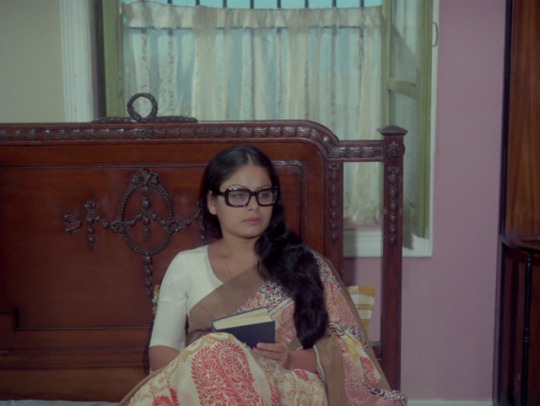
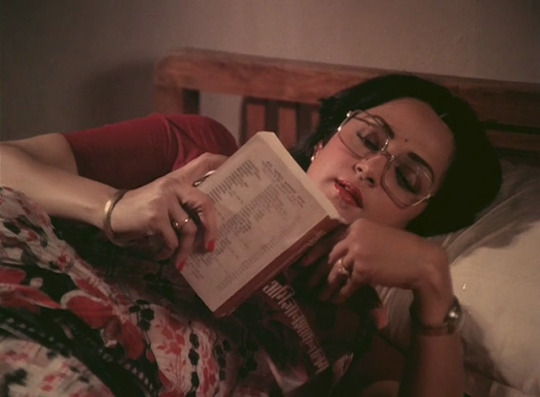
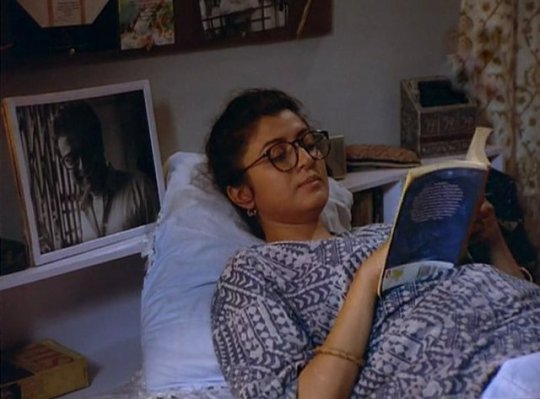
100 notes
·
View notes
Photo
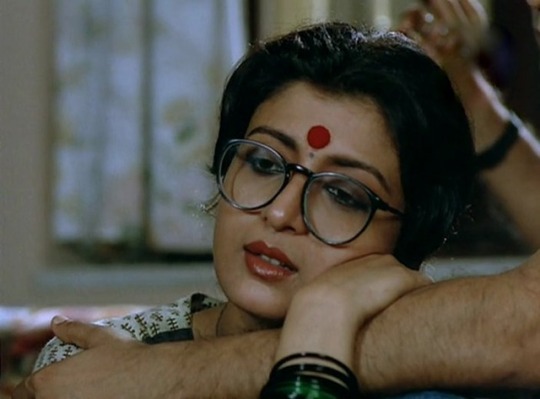
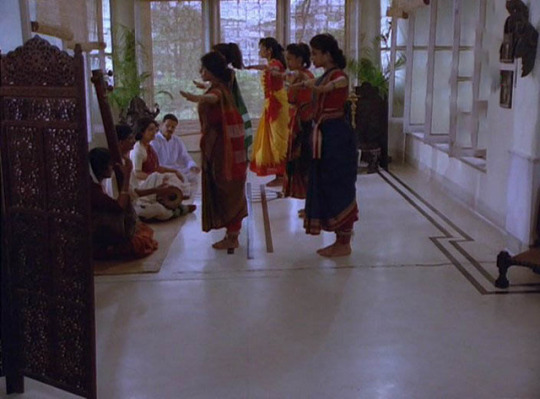
উনিশে এপ্রিল Unishe April (1994)
#unishe april#rituparno ghosh#debashree ghosh#19th april#bengali cinema#indian cinema#when u find a better quality version...
310 notes
·
View notes
Text
LGBT entertainers from India
Vardaan Arora
Vardaan Arora (born April 22, 1992) is an Indian recording artist, songwriter, and actor based in New York.
Bobby Darling
Pakhi Sharma, famous as Bobby Darling and formerly known as Pankaj Sharma, is a transgender Indian actress active in Bollywood and regional Indian film industry.
Tista Das
Tista Das (Bengali: তিস্তা দাস) or Teesta Das (born 9 May 1978) is an Indian transgender rights activist, actor and writer from the Indian state of West Bengal. She acted in quite a few Hindi and Bengali films.
Sushant Divgikar
Sushant Divgikar is an Indian model, actor, singer, columnist, psychologist, motivational speaker, drag queen, pageant director, and video jockey.
In July 2014, they were crowned Mr Gay India 2014. They represented India at Mr Gay World 2014.
Rituparno Ghosh
Rituparno Ghosh (31 August 1963 – 30 May 2013) was an Indian film director, actor, writer and lyricist. After pursuing a degree in economics, he started his career as a creative artist at an advertising agency. He received recognition for his second feature film Unishe April which won the National Film Award for Best Feature Film. Having won 19 National Awards, along with his contemporaries Aparna Sen and Goutam Ghose, Rituparno heralded contemporary Bengali cinema to greater heights.
Vikas Gupta
Vikas Gupta (born 7 May 1988) is an Indian television producer, creative director, screenwriter and host. He is known for participating in Bigg Boss 11 and hosting MTV Ace of Space.
Ivanka Das
Ivanka Das is an Indian actress, dancer, choreographer, model, and drag queen. She is known for her participation in the Indian reality television show Dance Deewane and the Netflix series Bombay Begums.
Karpaga
Karpaga is an actress who made her debut in a Tamil movie called Paal. She is the first trans person ever in India to perform a leading role in a mainstream movie.
Freddie Mercury
Born in 1946 in Zanzibar to Parsi-Indian parents, Mercury attended English-style boarding schools in India from the age of eight and returned to Zanzibar after secondary school. In 1964, his family fled the Zanzibar Revolution, moving to Middlesex, England.
Sumathi Murthy
Sumathi Murthy is a Hindustani classical vocalist, composer and LGBT right activist based in Bangalore. She hails from the Agra gharana of singing. She identifies herself as a queer.
Narthaki Nataraj
Narthaki Nataraj is a Bharatanatyam dancer. In 2019, she was awarded the Padma Shri, making her the first transgender woman to be awarded India's fourth-highest civilian award.
VJ Andy
VJ Andy, also known as Andy Kumar, is a television personality in India. He worked as Video Jockey for Channel V and has hosted several television programs including Dare 2 Date a dating reality show. He was a contestant in the seventh season of Bigg Boss, finishing fifth.
Rose Venkatesan
Rose Venkatesan is the first Indian talk show host based in Chennai, Tamil Nadu. She is a trans woman, and has been active in many fields like television and radio.
Laxmi Narayan Tripathi
Laxmi Narayan Tripathi (known as Laxmi, sometimes transliterated as Lakshmi) is a transgender/Hijra rights activist, bollywood actress, Bharatanatyam dancer, choreographer and motivational speaker in Mumbai, India. She is also the Acharya Mahamandaleshwar of kinnar akhada. She was born in Malti Bai Hospital on 13th Dec 1978 in Thane. She is the first transgender person to represent Asia Pacific in the UN in 2008. At the assembly, she spoke of the plight of sexual minorities. "People should be more human like. They should respect us as humans and consider our rights as transgenders," she said.
Aneesh Sheth
Aneesh Sheth (born January 5, 1982) is an Indian-American actress and transgender activist.
Yuvraaj Parashar
Yuvraaj Parashar is an Indian Bollywood model and film actor who starred in India's first homosexual film, Dunno Y... Na Jaane Kyon (Don't Know Why) (2010). His parents have taken legal action to disown him because of the film, despite winning acclaim from Deputy Chief Minister of Maharashtra Chhagan Bhujbal for their portrayal of bisexual men. Parashar is originally from Agra in India. Dunno Y... Na Jaane Kyun got 11 international awards including best actors and best film.
#translation#lgbtq community#lesbian#nonbinary#nonbinary lesbian#lgbt pride#sapphic#lgbtqia#gay girls#lgbtq#queer#trans man#mtf trans#trans#transgender#trans pride#trans positivity#trans masc#trans women#transformation#gay pride#pride and prejudice#pride#pride parade#pride lb#wlw pride#queer pride
31 notes
·
View notes
Text
Shakuntala Devi - Adds up to one-time watch Review and Rating
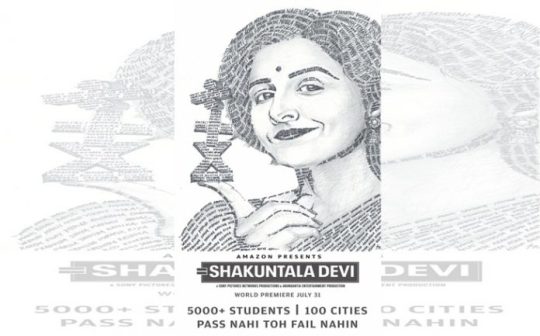
“Shakuntala Devi” (film streaming on Amazon Prime); Cast: Vidya Balan, Jisshu Sengupta, Sanya Malhotra, Amit Sadh; Direction: Anu Menon; Rating: * * * (three stars)
Swedish auteur Ingmar Bergman in his 1978 classic, Autumn Sonata, set up an enchanting conflict of emotions between a renowned classical pianist and her rather average daughter, who stifles beneath the fame of her illustrious mother.
Many prolific filmmakers worldwide have used Bergman’s film as a textbook to explore themes around the relationship a famous mother may share with a daughter who yearns for a normal life. In India, random recall would bring back the late Bengali aesthete Rituparno Ghosh’s brilliant 1994 drama, “Unishe April” (19th April).
In “Shakuntala Devi”, director Anu Menon uses a similar tack while dissecting her subject, in a far more mainstream language. Shakuntala Devi was a phenomenon. She was also a mother and wife. Menon takes an interesting approach to dissect how the phenomenon was born at the cost of the mother and wife.
The idea is brought alive through a narrative that broadly unfolds through the eyes of Shakuntala’s daughter, Anupama Banerjee, which is why “Shakuntala Devi” is as much a biopic as it is a drama about a mother-daughter relationship.
The approach prevents “Shakuntala Devi” from becoming hagiography. The filmmaker scores with understated assurance while balancing the Human Computer and the human being.
#Shakuntala Devi film streaming on Amazon Prime#Shakuntala Devi Rating and Review#Vidya Balan#bollywood news#entertainment news#latest bhaskarlive news#English News With Bhaskarlive#bhaskarlive news
1 note
·
View note
Text
Neena Gupta Starrer Barely Goes Beyond the Surface
Neena Gupta Starrer Barely Goes Beyond the Surface
Masaba
Cast: Neena Gupta, Masaba Gupta,
Director: Sonam Nair
One of the best films that I have seen on the mother-daughter relationship is the late Rituparno Ghosh’s Unishe April (19th April). In Bengali, it begins with Aditi (played superbly by Debashree Roy, whose role in 36 Chowringhee Lane was highly lauded as was Jennifer Kapoor’s performance as an ageing school teacher) returning home after…
View On WordPress
0 notes
Text
Neena Gupta Starrer Barely Goes Beyond the Surface
Neena Gupta Starrer Barely Goes Beyond the Surface
Masaba Masaba
Cast: Neena Gupta, Masaba Gupta,
Director: Sonam Nair
One of the best films that I have seen on the mother-daughter relationship is the late Rituparno Ghosh’s Unishe April (19th April). In Bengali, it begins with Aditi (played superbly by Debashree Roy, whose role in 36 Chowringhee Lane was highly lauded as was Jennifer Kapoor’s performance as an ageing school teacher) returning…
View On WordPress
0 notes
Text
Neena Gupta Starrer Barely Goes Beyond the Surface
Neena Gupta Starrer Barely Goes Beyond the Surface
Masaba Masaba
Cast: Neena Gupta, Masaba Gupta,
Director: Sonam Nayari
One of the best films I have seen on the mother-daughter relationship is the late Rituparno Ghosh’s Unishe April (April 19). In Bengali, it begins with Aditi (played brilliantly by Debashree Roy, whose role in 36 Chowringhee Lane was highly praised, as did Jennifer Kapoor’s aging school teacher) with her mother Sarojini. She…
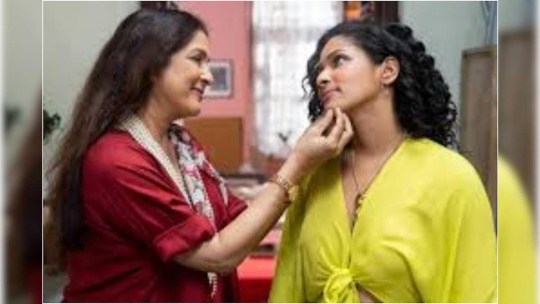
View On WordPress
0 notes
Text


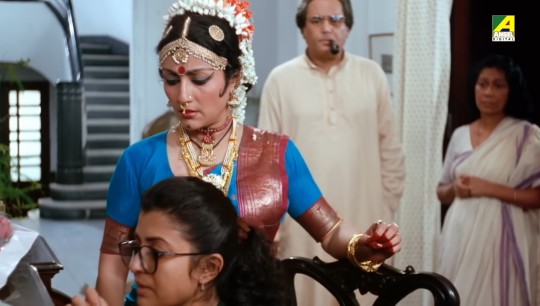
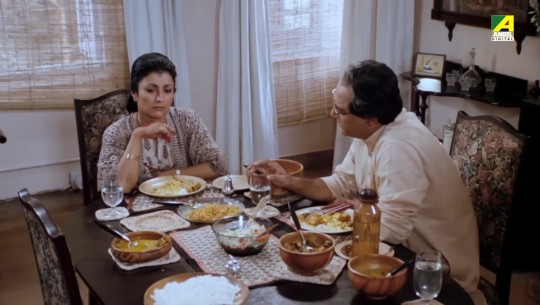
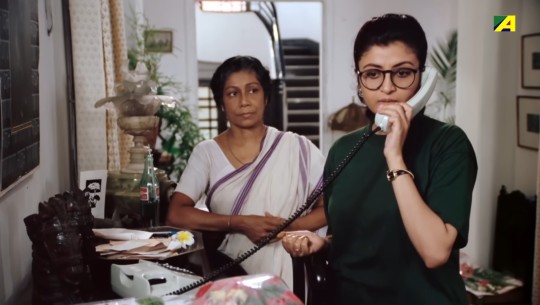

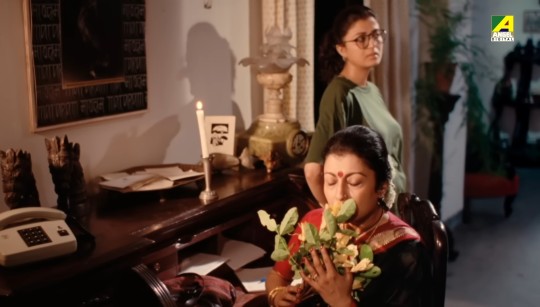
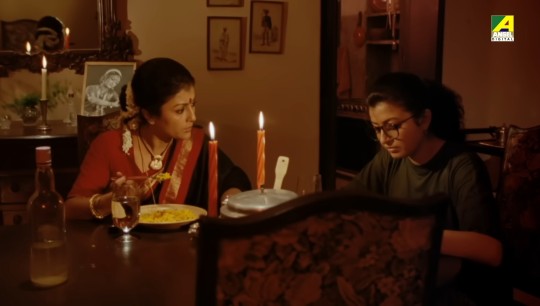
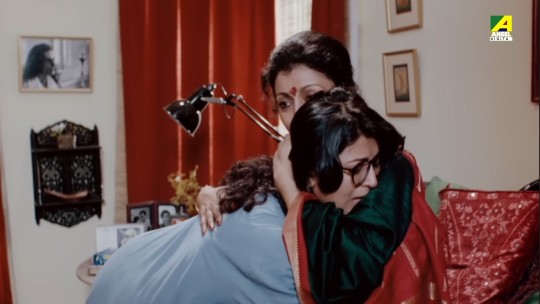

Unishe April (1994), dir. Rituparno Ghosh
1 note
·
View note
Text
The latest presentation of hoichoi
The impact of Bengali cinema on the genesis and proliferation of Indian cinema is second to none. Tollywood, as it is commonly known, has produced numerous visionaries, legends, and cinematic marvels over the years that have poured pride over Indian cinema and etched itself onto history. The latest presentation of hoichoi tv is a chronological anthology of the works of some of the most influential ambassadors of Bengali cinema. After the immense success of the Satyajit Ray anthology, Shotoborshe Satyajit, hoichoi is back with some more.
The first collection is themed after the legendary actor Uttam Kumar. Commonly known as "Mahanayak", Uttam Kumar remains as relevant to the Bengali culture as Mishti Doi, Rasgulla, and Football. A behemoth of acting prowess, Uttam Kumar has starred in over 100 Bengali movies, winning numerous accolades and awards, including the National Film Award and Bengal Film Journalists' Association Award. The hoichoi collection dedicated to him features over thirty of his movies. A collection that would not only touch the nostalgia of viewers who already have enjoyed his works but also introduce his greatness to the viewers who are yet to experience the Mahanayak magic. Some of the films featured in this collection are, Chiriakhana, Sanyashi Raya, Deya Neya, Sare Chuattar, Chowringhee, Ogo Badhu Sundori and more.
The next collection, themed after a modern-day great, actor-director Rituparno Ghosh. A man who heralded contemporary Bengali cinema to greater heights. An auteur and a master of his craft, he won numerous national and international accolades, notably the National Film Award, Berlin International Film Festival, Locarno International Film Festival, and many more. His highly acclaimed style glorified womanhood and closely and sensitively portrayed women's lives, feelings, and sufferings. Ghosh's exploration of Rabindranath Tagore's literary works and their subsequent cinematic adaptation helped raise the standards of filmmaking in Tollywood. Some of the films featured in this collection are Chokher Bali, Dosar, Unishe April, Memories in March, and Chitrangada- The Crowning Wish.
The final set of collection, featuring the works of highly acclaimed director of recent times, Srijit Mukherji. A National Award-winner with a unique style of helming stories and choice of subject content has managed to instill a sense of freshness in Bengali cinema. Right from his first feature film Autograph, released in 2010, which was a critical and commercial success. Srijit Mukherji movies have explored a diverse range of genres. Some of the movies featured are Hemlock Society, Jaatishwar, Chotushkone, Gumnaami, and Baishe Srabon.
Log in to hoichoi and enjoy a wonderful array of films that will surely make you appreciate the diverse, content-rich nature of Bengali cinema.
0 notes
Photo
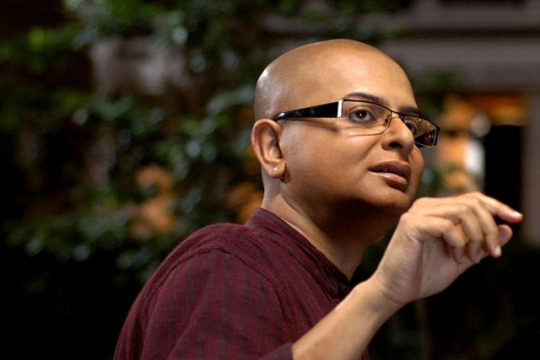
Remembering filmmaker Rituparno Ghosh on his 4th death anniversary.
Rituparno Ghosh (31 August 1963 – 30 May 2013) was a film director, actor, writer and lyricist in the Bengali cinema. After pursuing a degree in economics he started his career as a creative artist at an advertising agency. In 1992, his debut film Hirer Angti released. In 1994, his next film Unishe April released which won National Film Award for Best Feature Film.
Ghosh was a self-professed Satyajit Ray fan and inspired other filmmakers like Mithaq Kazimi who adapted Ghosh's film Raincoat in English. In his career spanning almost two decades, he won 12 National and many International awards. Ghosh died on 30 May 2013 in Kolkata after a heart attack.
His unreleased Bengali movie named Taak Jhaank was honoured and released at the 19th Kolkata International Film Festiva.
Rituparno Ghosh was one of the most acclaimed film directors of India, and was himself an admirer of Satyajit Ray. His films glorified womanhood and closely and sensitively portrayed women's lives, feelings and sufferings. According to Bollywood actor Anupam Kher, Ghosh had wonderful understanding of the female psyche. In his last films he addressed issues of homosexuality and gender
An article in the newspaper Live Mint categorised Ghosh's cinematic career in three phases: In his early films, he tried to portray Bengali middle-class lives, their aspirations and desires; in the second phase, he mainly worked with Bollywood actors and made films in Hindi and English as well as Bengali; in the third and the last phase his movies mainly dealt with sexuality.
Rituparno Ghosh had deep interests in the classics and made multiple films of Rabindranath Tagore's works. According to film-maker Goutam Ghose.
Rituparno Ghosh was a researcher and admirer of
His films, with their sensitive portrayal of human relationships, anguish, trauma and love in a fast-changing, post-liberalisation India charmed audiences. His brilliant story-telling reflected contemporary society like never before. While his death creates a tremendous void that can never be filled, Rituparno's work blazed a trail that has paved the way for an entire generation of filmmakers who have dared to be different. It was Rituparno who gave them the courage.
He looked at ordinary middle-class relationships from an angle that had never been explored. For example, the mother-daughter relationship in 'Unishe April' was refreshing, yet realistic in a society that was going through churning.
Goutam Ghose also felt that Rituparno Ghosh was the best film director of his generation. He directed and as well as acted in such films which tried to reject the concept that homosexual relationship is all about a physical relationship. He said in an interview in 2010— "There is much more to such relationships. Same-sex relationships, too, are extremely soulful, emotional and have the same pathos that any heterosexual relationship has."
Bengali film director Mrinal Sen said that whenever he thought of direction, the name that came to mind was Rituparno Ghosh. According to Sen, Ghosh's contribution to Indian cinema will be remembered forever. The independent film critic Saibal Chatterjee, in an article in The Hindu, described the way Ghosh mixed the literary traditions of Bengal with modern-day sensibility, thereby transcending the confines of region. Chatterjee praised Ghosh for his brave and empathetic treatment of "alternative sexuality" as actor in Arekti Premer Golpo and Memories in March, and as director-actor in Chitrangada.
Like बॉलीवुड डायरेक्ट Bollywoodirect
0 notes
Photo

Unishe April (1994)
1K notes
·
View notes
Photo
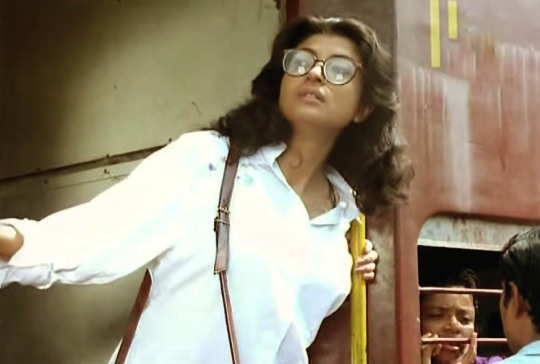
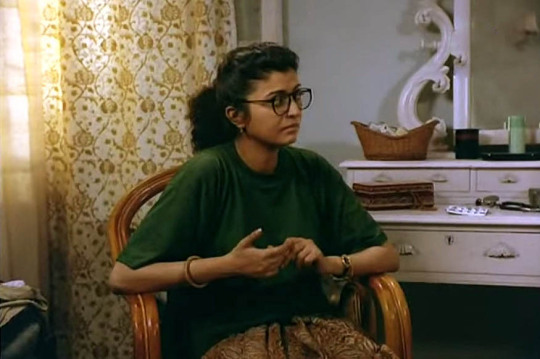
677 notes
·
View notes
Text
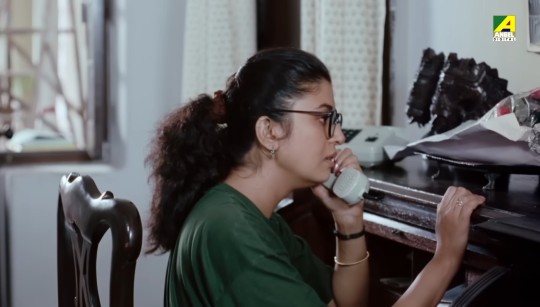
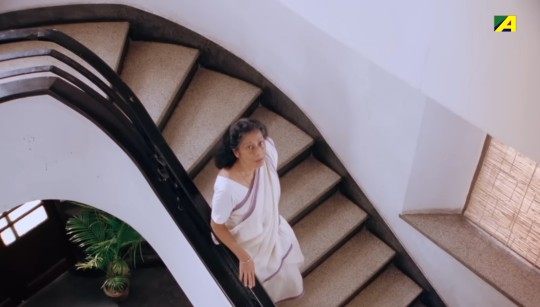


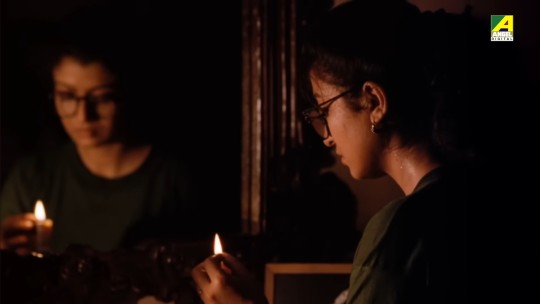




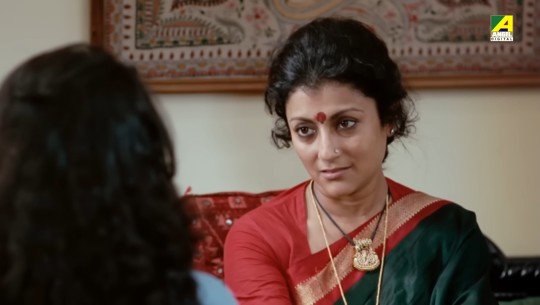
Unishe April (1994), dir. Rituparno Ghosh
1 note
·
View note
